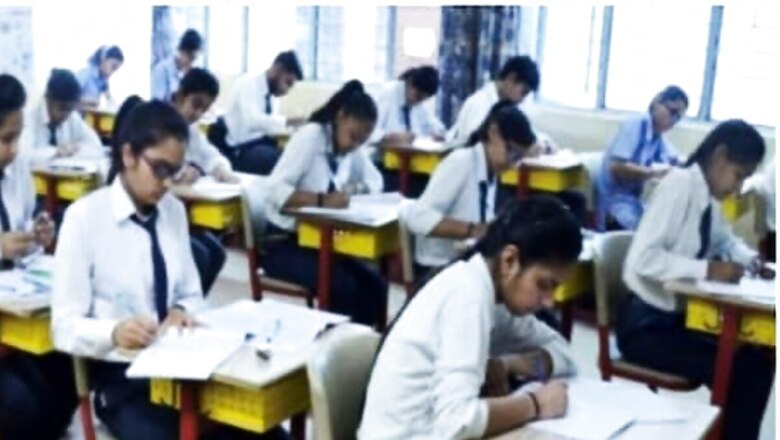
views
The Karnataka government on Wednesday constituted a committee of experts to frame the Karnataka State Education Policy to replace the National Education Policy (NEP). The state government has issued a ’Government Order’ constituting a 15-member committee and there is a separate group of eight subject experts/ advisors to give expert advice.
“The Government is pleased to accord sanction to constitute the State Education Policy Commission for preparation of draft Karnataka State Education Policy under the chairmanship of Prof. Sukhdev Thorat, an eminent Educationist. Economist, Professor, Writer and Former Chairman of UGC New Delhi,” the GO said. The Commission shall submit its report by February 28, 2024.
The members of the committee include — Prof. S Japhet, Founding Director of the UGC sponsored Centre for the Study of Social Exclusion and Inclusive Policy (CSSEEIP), Dr. Sudhir Krishnaswamy, Vice Chancellor of National Law School of India University (NLSIU), Dr. Sharat AnanthaMurthy, Professor, School of Physics, University of Hyderabad, A Narayana, Professor with the school of policy and Governance, Azim Premji University — among others. Dr. Bhagyavana S Mudigoudra, Special Officer, Department of Higher Education, will act as the Member Secretary to the commission, and will coordinate and maintain the proceedings of the meeting.
Members are identified as subject experts/advisors for expert advice include: Prof. Yogendra Yadav, Senior Fellow at the Center for the Study of Developing Societies, Delhi; Prof. Rahamath Tarikere, Retd. Professor in Kannada, Kannada University, Hampi; Prof. Janaki Nair, Historian and Retd., Professor at the Centre for Historical studies, Jawaharalal Nehru University, Sonam Wangchuk, Engineer turned Education Reformer and Director of the Himalayan Institute of Alternatives, Ladakh (HIAL), among others. “A committee has been established, under the chairmanship of Prof. Sukhdev Thorat, to prepare the draft of the Karnataka State Education Policy. I am confident that this committee will provide suitable recommendations for nurturing scientific temperament, intellectual growth, and necessary education for the holistic development of students,” Chief Minister Siddaramaiah said in a post on social media platform ’X’.
“I hope the Karnataka’s State Education Policy will serve as a model education policy for the country,” he added. Karnataka Deputy Chief Minister DK Shivakumar had recently said that the state government has decided to scrap the existing National Education Policy introduced by the Bharatiya Janata Party-led government and formulate a new education policy for the state in the coming year.
During the BJP rule, Karnataka was the first state to implement the National Education Policy in 2021 in the country. The Government Order shall come into effect immediately, it said and added that all authorities concerned are hereby directed to extend their fullest cooperation and assistance to the commission during its deliberations.
Department of State Educational Research and Training (DSERT) and Karnataka State Higher Education Council (KSHEC), Bengaluru will provide all administrative / secretariat assistance and logistic support to the Commission. The members of the Commission will be paid TA/DA as per extant rules of Government of Karnataka. The Department of School Education & Literacy and Department of Higher Education will appoint nodal officers who will make all necessary arrangements for the Commission covering its meetings, travel, boarding and lodging of the members.
Karnataka has decided to constitute a Commission to undertake careful review of the School and Higher Education in Karnataka and to suggest policies to achieve a higher enrolment in the schools and higher education; to expand the education with improved quality; to provide equal access to all individuals to quality education, the GO in its preamble said. It also aims to meet the prime goals of education effectively i.e., imparting scientific knowledge to the students, to inculcate democratic values, give skill and professional education to enhance employability and giving moral education to build good citizenship among the students.




















Comments
0 comment